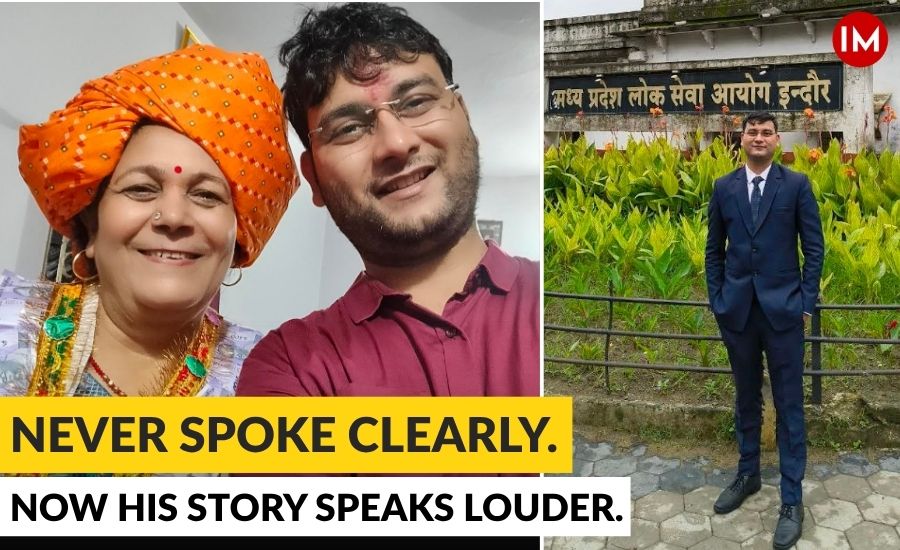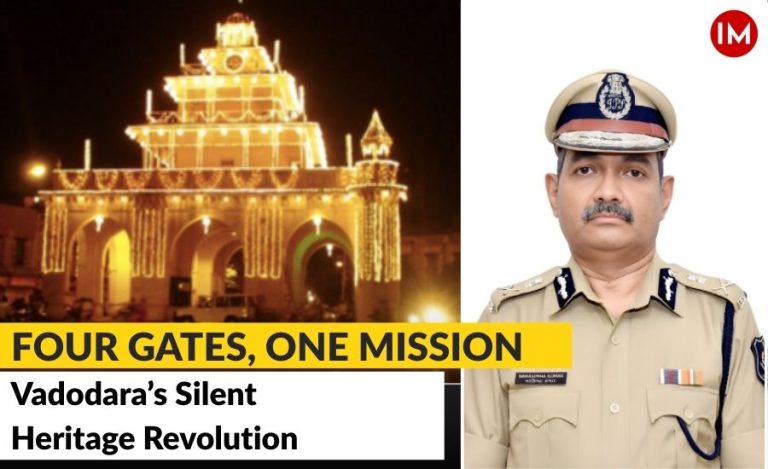When Ayush Sharma looks back at his childhood in Morena—a small town in Madhya Pradesh—his memories are shaped as much by ambition as by years of medical struggle. Diagnosed with vocal cord palsy at the age of three, he grew up with difficulty speaking, breathing problems, and frequent hospital visits. Yet, decades later, the same boy who often couldn’t sleep without nebulisation has secured Rank 4 in the Assistant Director (Finance Department) examination of MPPSC 2024.
A CHILDHOOD MARKED BY ILLNESS AND RESILIENCE
For most children, early school years are filled with play and energy. For Ayush, they were filled with doctor appointments and anxious nights. His vocal cord palsy meant chronic discomfort and episodes where breathing became difficult. “Those were tough days for my entire family,” he said in a conversation with Indian Masterminds. “My parents would wake up on winter nights just to nebulise me so I could sleep better. We often had to travel far from Morena for treatment.”
The struggle was not just physical. What troubled Ayush more was seeing his family carry the emotional burden of his illness. A memory that still stays fresh is the day doctors told his parents: “Iski awaaz wapas jaise ni ho payegi… zindagi bhar aapko iski dekh bhaal karni padegi.” When he saw tears in his brother’s eyes, something shifted inside him. That moment sparked a deep determination—one day, he would make his family proud.
LOSING SPORTS, LOSING ART AND FINDING PURPOSE
Despite his health challenges, Ayush refused to remain limited. He trained hard and became a seven-time state-level basketball player. For a boy battling a voice disorder, sports became his escape, his confidence booster. But as the condition worsened, basketball too slipped away. “Leaving the sport I loved was painful,” he says.
Searching for another outlet, he turned to art. But even that became difficult due to his voice-related limitations and related strain. Losing two passions back-to-back left him disheartened.
But while he was battling personal struggles, he also discovered a different kind of purpose. In school, he was part of several social campaigns, including a city-wide crowdfunding drive to support treatment for a three-year-old battling blood cancer. Helping others made him feel useful at a time when he was questioning his own abilities. “Those experiences shaped my decision to work in public service,” he says. “I realised that serving others gave me a kind of satisfaction nothing else did.”
THREE FAILURES, HEALTH CRISES AND A PROMISE TO HIMSELF
When Ayush decided to prepare for civil services, he made a simple but powerful resolution: Whatever It Takes. He put these words on his wall and treated them as his daily reminder.
But the path wasn’t kind. He failed the prelims three years in a row. Each failure brought its own frustration, doubts, and emotional strain. “Repeated failure affects you deeply,” he says. “Your mind starts questioning everything—your ability, your choices, your future.”
During his mains and interview preparation, his health deteriorated again. Old complications resurfaced and the timing couldn’t have been worse. The combination of physical strain, exam pressure, and personal challenges made the journey heavier.
Through it all, one constant source of strength remained—his family. His father would often remind him, “Beta, asafalta hi safalta ki kunji hai.” Encouraged by these words, Ayush kept moving. Meditation helped him regain focus. Small improvements each day kept him steady.
Finally, on 12 September 2024, after four years of relentless effort, he opened the result list. And there it was—his name. “For a few seconds, I couldn’t believe it,” he says. “More than joy, there was relief. After three failed prelims, seeing my name felt surreal. I was filled with gratitude toward God and my family.”
A MESSAGE FOR ASPIRANTS
Today, Ayush Sharma’s selection is celebrated across Madhya Pradesh not simply because he secured Rank 4, but because he represents the quiet fighters—the ones battling health issues, financial constraints, emotional fatigue, and repeated setbacks during exam preparation.
His message to aspirants is simple and practical: “Don’t give up. Be disciplined and consistent. Improve a little each day. Failures cannot define you unless you let them. Practise gratitude and keep putting in the work—you will see the results soon.”


































